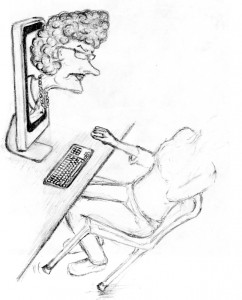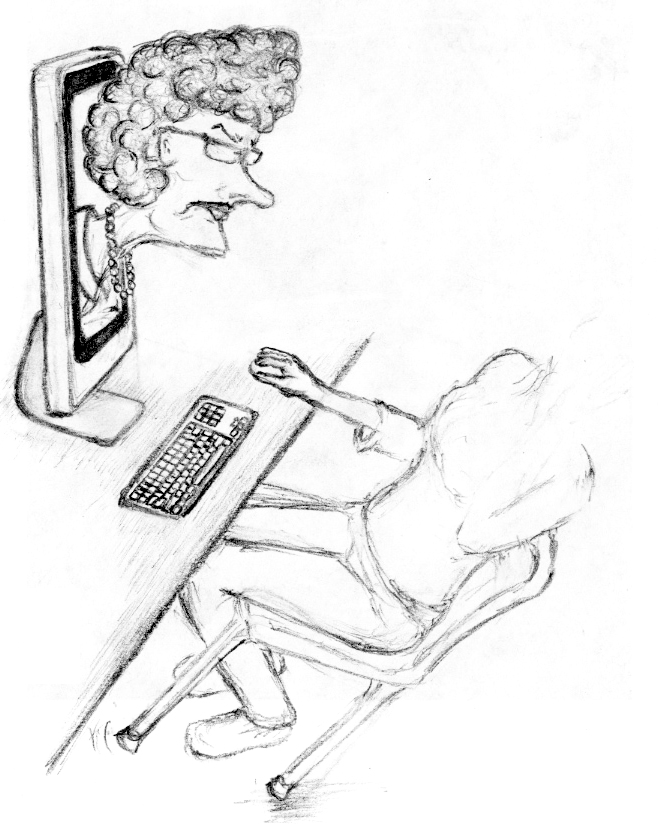Internet Privacy & Kids: Social Network Monitoring in Schools
Social network monitoring becomes big business. Fresh off the heels of learning that the NSA has been gleaning data about us using information found on social networking sites comes the news that a school district in California is paying a monitoring service to watch and report on what students are posting on sites like Twitter, Facebook and Instagram.
Glendale Unified School District is paying $40,000 over the next year to a company called Geo Listening to monitor its students’ social media activity. This program was introduced after one of their students, 15-year-old Drew Ferraro, committed suicide by jumping from the roof of Crescenta Valley High School. It started as a pilot project in three schools last year and is now being rolled out to all middle and high schools across the district.
Glendale is not the first school system to use monitoring services. They are used fairly commonly at the college level. Louisville and Kentucky use a social media monitoring system with their athletes that flags words for coaches that relate to drugs, sex or alcohol and they also have access to all of the athletes’ photos and videos. (LSU, Florida, Texas A&M, Texas, Missouri, Ole Miss, South Carolina, Auburn, Baylor and New Mexico are among the other schools that use similar monitoring methods).
Mount Wachusett Community College was one of the first schools to monitor social media on a dedicated level and was recognized for being proactive by the National Council for Marketing and Public Relations. Robin Duncan, vice president for marketing and communication at MWCC says simply, “If you don’t have someone paying attention to your new media … you’re being negligent.”
In Indiana, a high school senior, Austin Carroll, was expelled from Garrett High School and forced to enroll at an alternate school to get his diploma for a profanity-laden tweet that was flagged by his school’s social media monitoring system. Many schools that don’t pay for a monitoring service still task their administrators with doing it.
So, while it’s nothing new for schools to monitor their students’ communications (I recall having a few notes intercepted and read by my teachers), it begs some questions:
- Who should be in charge of monitoring our kids?
- How much privacy should kids be allowed?
- To what extent should schools be involved?
The answers are not straight-forward. When daily reports of government surveillance cause a public outcry over privacy issues, we want to extend those same privileges to our kids. Yet, there are cases like the Ohio school shooter, T.J. Lane, who killed three classmates and wounded others. Lane had posted chilling comments on Facebook a few months before and tweeted the morning of the shooting that he was bringing a gun to school. It was right there, publicly posted, yet no one knew to stop him.
It’s easy to blame the schools, to blame the district, to blame someone else, but as parents, WE should be the ones to monitor our kids’ posts…
- WE need to remind them that all posts are permanent, public and exploitable – forever.
- WE need to look for warning signs of violent intentions toward self or others, substance abuse, bullying…
- WE need to get off our own Facebook pages and check in on our kids.
- We need to have engaging, heart-to-heart conversations with our kids so that they feel we are the ones to reach out to when the dark days come.
The truth, however, is that some (okay-most) parents don’t do it. As with countless other issues that we have come to expect our schools to teach (sex education, drug resistance, anti-bullying), keeping up with social media is something most parents aren’t comfortable with, don’t understand completely, or just don’t want to deal with. And that unwillingness has disastrous consequences for kids who are troubled, in trouble, or the victim of another troubled child.
Ralph Hicks, superintendent of Ashburnham-Westminster Regional School District in Massachusetts, explains that the legal doctrine “in loco parentis,” which is Latin for “in place of a parent” allows school officials to interfere in the lives of students only in issues involving the school. More and more, that definition involves anything said about the school (or students and staff) whether the communication occurs on campus or not.
Parents (and students) who think that this monitoring is a violation of their kid’s privacy should remember that EVERYTHING BEING MONITORED IS ALREADY PUBLIC. Schools aren’t breaking into your child’s Facebook account, they are simply monitoring what everyone else on the Internet can see. And if it saves a life, thwarts a bully, or rescues a child in need, it’s worth it.
John Sileo is a keynote speaker on Internet Privacy and CEO of The Sileo Group, a think tank that trains organizations to harness the power of their digital footprint. Sileo’s clients include the Pentagon, Visa, Homeland Security and businesses looking to protect the information that makes them profitable.
Sorry, comments for this entry are closed at this time.











1 Responses to Internet Privacy & Kids: Social Network Monitoring in Schools
I think parents need to understand that school teachers play a vital role in the growth of their children and they don’t misuse kids social accounts. They just want to monitor the activities of the children for their benefits and for checking that children are not wasting their time on any irrelevant sites and to keep them safe from cyber bullying. Now days, we have seen so cases on cyber bullying and to stop these kinds of activities network monitoring software like Net Orbit can be used in the schools.